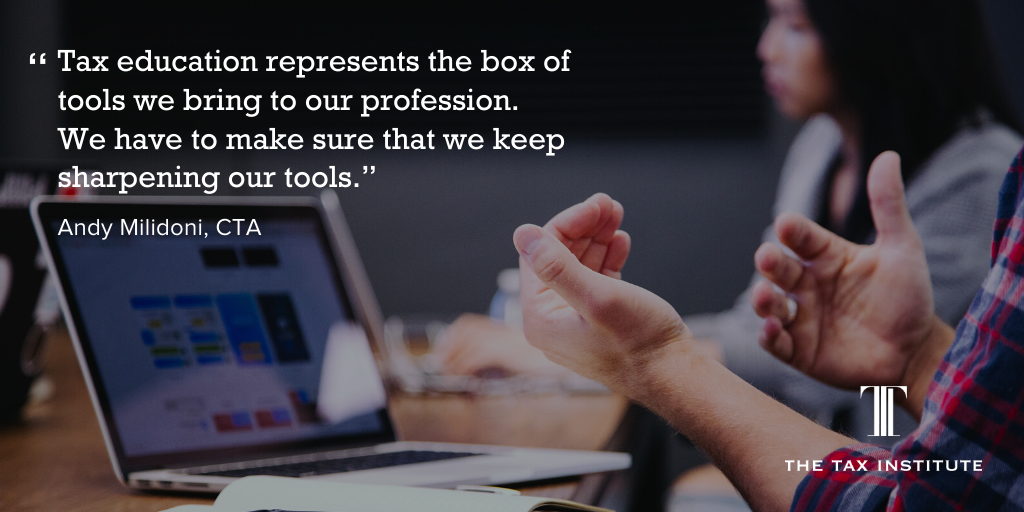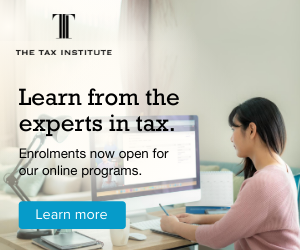
But what distinguishes the average tax practitioner from the rest?
Andy Milidoni, CTA, Partner at Johnson, Winter & Slattery and one of our most respected lecturers, sheds some light on the 3 traits that make a great tax professional and what it takes to write top quality tax advice.
Andy Milidoni’s top 3 traits that make a great tax professional
1. Being inquisitive
According to Andy, asking a lot of questions and being interested in your client is essential for great tax professionals. Regardless of which sector your client is coming from, whether they're in services, if they're emerging and growing, or whether they're established, the quality of tax advice really is dependent on how much you understand their transactions and general business operations.
“We have to be inquisitive, because we're not going to know everything in tax; the tax law's too big, it's always changing, and on top of that, before we can even get to tax advice, we have to understand what the clients do, and how they do it,” he explains.
“So, if you're not inquisitive, and you're not wanting to dig, and dig deeper, then I can't see how you can succeed in tax.”
Legislation doesn't always provide a clean answer, so Andy says it’s our job to put things together and make it work. He adds, “I think tax lawyers are very hard-working, inquisitive and we're not scared of difficult problems.”
2. Keeping your tools sharp
It goes without saying that tax education is a very critical component of any tax lawyer's career. It's not something that starts and ends at university. It’s continuous.
“The range of education that you can obtain in the marketplace means that, whichever level you're at, you should always be tapping into education that will build your skills, and keep you going further,” Andy says.
“Whether it's attending formal education courses, like programs available at The Tax Institute, or attending their online webinars.”
Tax lawyers need to be open to learning because the environment we work in is dynamic and constantly evolving.
“I don't think anyone really ever gets on top of tax law, but what we have in tandem is our increasing knowledge of the actual tax law, but also the refinement of our skills,” Andy says.
“Tax education represents the box of tools we bring to our profession. We have to keep making sure that we keep sharpening our tools, we keep replacing our tools, or updating them.”
He admits that even the most seasoned professional will look at a problem and not be one hundred percent certain about the answer.
“Rarely do we know the answer within the first half an hour of looking at something,” he adds.
“Our passion comes from problem-solving in the context of legislation and abiding by the rules. The advice we provide needs to work for the Australian Tax Office and for the client.”
3. Thinking clearly
Clear and concise thinking is a way of looking at and absorbing information in a way that acknowledges there are numerous balls in the air.

“There's getting on top of the facts, knowing what the areas of law are, what the application might be, and actually managing all those balls in the air. It’s stepping back from a client issue, and not having preconceived ideas about the solution,” Andy points out.
Tax professionals should be asking themselves:
- Does this all stack up?
- Do I need to know more?
- What are the tax risks?
- Is there something else I should be asking?
Tax professionals essentially need to look at logic and marry it with application, according to Andy. And this is what students can expect from his CTA3 Advisory classes. His approach is to provide examples and help students connect the dots and solve case studies at hand.
“What I want students to walk away knowing is, to be able to read a problem from different perspectives. And you will only get better at it through practice, with guidance within your own workplaces, and through continuous education,” he says.
Wherever you are in your career, The Tax Institute’s learning programs or standalone subjects can provide you with the practical knowledge and technical expertise to reach your full potential. Enrolments are now open, find out more today.











